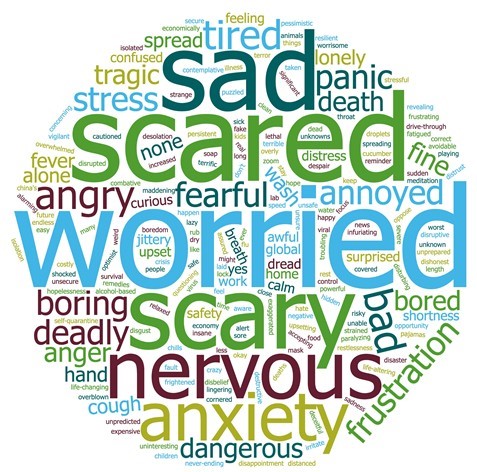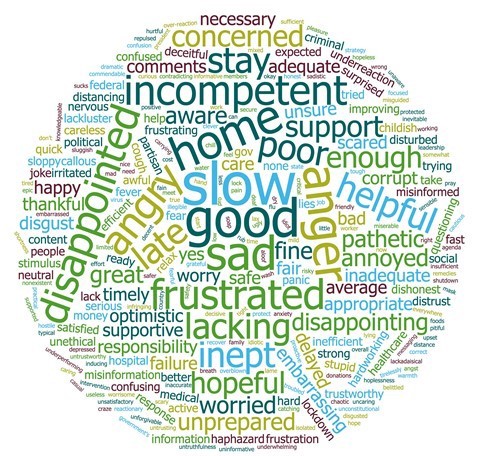The question we’ve been asked the most by clients the past few months is:…

What Do Consumers Really Think Of Airlines
JD Powers recently announced that consumer satisfaction with domestic airlines sits at an all-time high. With all the recent high-profile, poor publicity, this raised a few eyebrows, including our own. It isn’t simply that these news items could be driving public opinion down. It’s whether consumer satisfaction with airlines is high or low, rising or falling, that alone isn’t rich enough information to be very helpful to lawyers or consultants who work in airline litigation. We want to know why people hold the attitudes that they do.
With that in mind, we conducted our own study to try to find out what was driving attitudes about the airline industry. Many of our findings are consistent with other studies done, and not necessarily surprising. For one, our respondents – on the whole – have a favorable opinion of domestic airlines. Over half described domestic airlines as “okay,” and over quarter as either “good” or “great.” Fewer than 1 in 5 said they were “bad” or “terrible.”
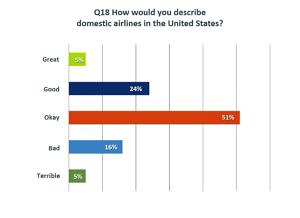
We also found, unsurprisingly, that consumers who fly First or Business class are more likely to have a high opinion of airlines than those who fly Economy, but we also found that frequent flyers are no more likely to have a high opinion of airlines than those who fly less often. The data also shows that belonging to a frequent flyer program had no effect at all on one’s opinion of domestic airlines.
While consumers largely have positive opinions about the airlines, respondents in our sample were far more likely to say their opinion has been getting worse, rather than vice versa.
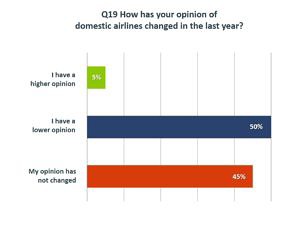
But the data gets even more interesting when we dig into why people have the opinions that they do. We asked what three words the respondents associated with airlines. The graphic below shows their responses, with larger words having appeared more often.
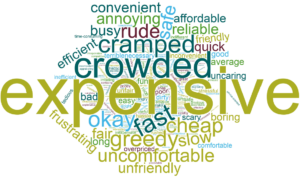
The word cloud paints a much more detailed – and somewhat gloomier – picture of consumer attitudes towards the airlines. Note, for instance, that almost all of the most common responses evince negative attitudes, despite the fact that when asked, 80% of these same respondents said domestic airlines were “okay,” “good,” or “great.” The first question doesn’t tell the whole story; you have to dig a little deeper to find out what people really think.
Crowding and expense are far and away the biggest problems respondents have with airlines. For better or worse, more serious negative reactions like “rude” and “greedy” – which may be more concerning for a potential juror, say – are less common.
Word clouds like this one can be an excellent starting point for brainstorming case themes or voir dire questions. In this case, for instance, counsel would know that they have to not simply design voir dire to find which jurors have negative opinions of airlines, but design questions that distinguish jurors with run of the mill complaints like “flights are expensive” from jurors with deeper criticisms and biases that may be worthy of cause challenges. It is an important reminder that not all attitudes, positive or negative, are created equal, and that carefully crafted voir dire is necessary to find the most problematic of them.


